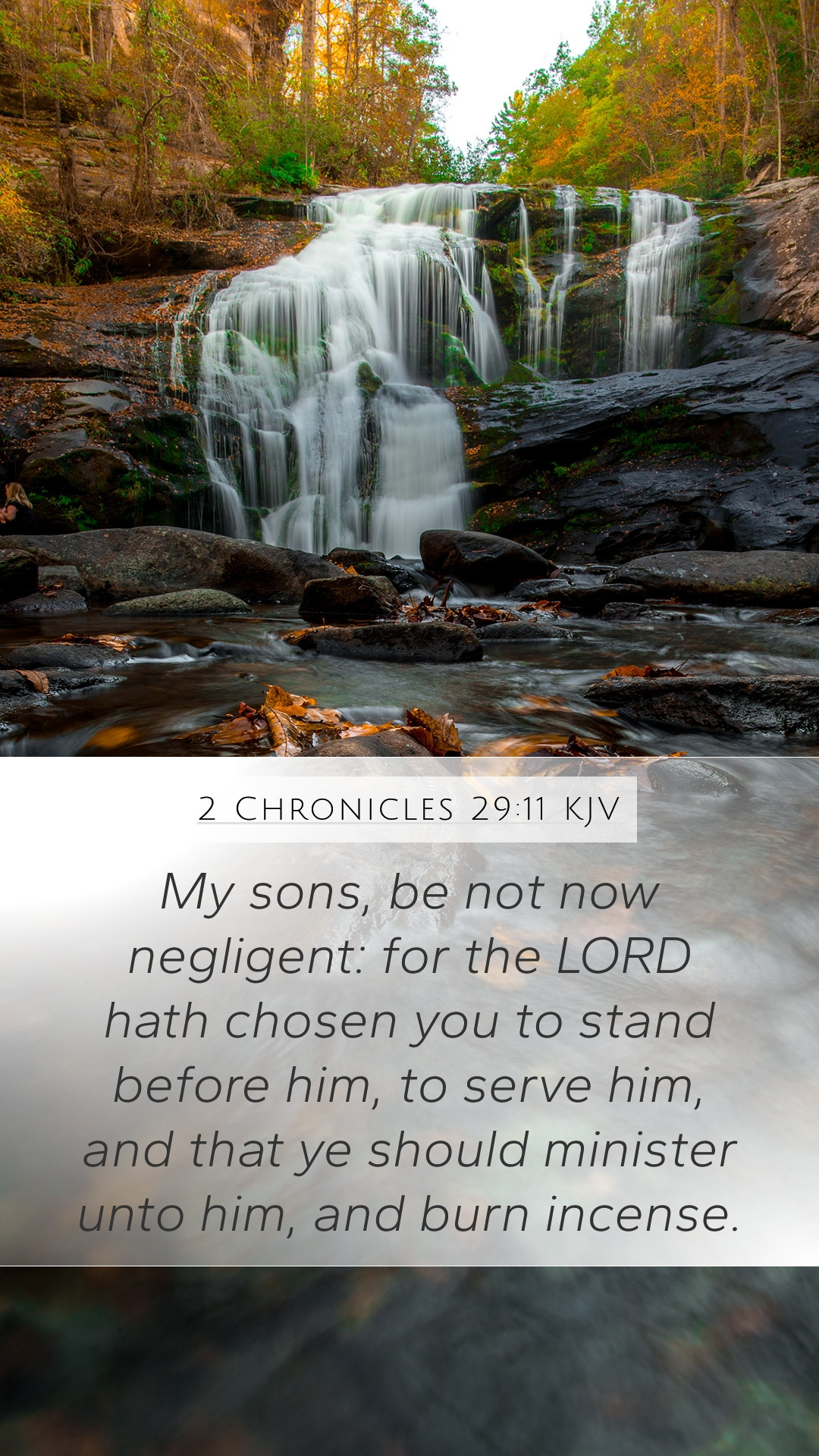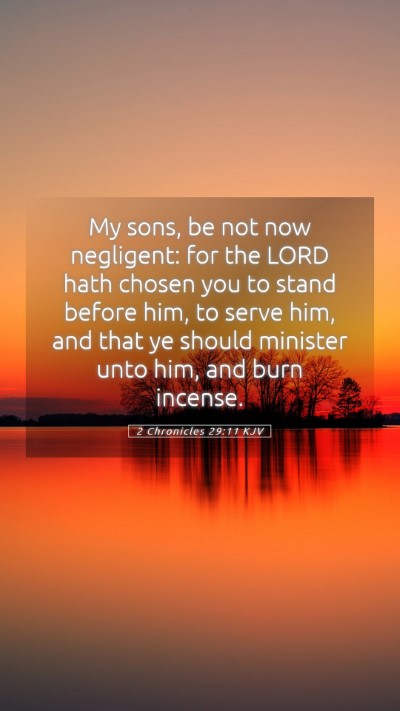Understanding 2 Chronicles 29:11
Verse: "My sons, do not be negligent now; for the LORD has chosen you to stand before Him, to serve Him, and that you should minister to Him and burn incense." (2 Chronicles 29:11)
This verse captures a heartfelt appeal from King Hezekiah to the Levites and priests during a time of religious reform in Judah. Below is a comprehensive analysis that combines insights from public domain commentaries to enhance our bible verse understanding.
Key Themes in 2 Chronicles 29:11
- The Importance of Service: This verse emphasizes the calling to serve God, highlighting that the Levites and priests have been specially chosen for a significant purpose.
- The Call to Faithfulness: The admonition against negligence points to the importance of dedication in worship and ministry.
- Ministry and Worship: There is a clear distinction made regarding the ministering to God and the act of worship, specifically through burning incense, which symbolizes prayer and devotion.
Bible Verse Meanings and Interpretations
The verse serves as a pivotal reminder of the roles and responsibilities assigned to the Levitical priesthood. Hezekiah’s words reflect his awareness of the significant task ahead of restoring temple worship and returning the hearts of the people to God.
Commentary Insights
Matthew Henry's Commentary: Henry explains that Hezekiah's appeal was not just administrative but comes from a place of spiritual urgency. He stresses the need for proper attention to the sacred duties prescribed by God. The king serves as an example of leadership that takes its spiritual obligations seriously.
Albert Barnes' Notes: Barnes points out that the phrase “do not be negligent now” indicates that a time of reckoning is at hand. The people had strayed from true worship, and Hezekiah's earnest call is for them to refocus on their holy calling. It highlights God's initiative in choosing the Levites, suggesting that service should be seen as a privilege and solemn responsibility.
Adam Clarke's Commentary: Clarke notes that the act of burning incense was not merely a ritual but carried significant meaning within Jewish heritage. It was seen as a representation of prayers ascending to God, symbolizing the need for divine listening and approval in their worship.
Applying the Insights: Bible Study Lessons
This verse provides critical bible study insights which we can apply to our personal lives and communities:
- Recognizing our own callings from God in various aspects of life.
- Maintaining diligence in our faith practices to avoid spiritual negligence.
- Understanding the significance of communal worship and the role it plays in individual and corporate faith.
Cross References
This verse resonates with several other scriptural passages, emphasizing similar themes of worship and service:
- 1 Peter 2:9: “But you are a chosen generation, a royal priesthood, a holy nation, His own special people…” - highlighting the identity of believers as a priestly nation.
- Romans 12:1: “I beseech you therefore, brethren, by the mercies of God, that you present your bodies a living sacrifice…” - encouraging service and dedication as a form of worship.
- Revelation 1:6: “And has made us kings and priests to His God and Father…” - affirming the continuous call to be dedicated servants in God's Kingdom.
Conclusion
In summary, 2 Chronicles 29:11 is an urgent call to commitment and service within the context of worship. Hezekiah's plea should remind modern believers to actively engage in their faith, understanding the significance of their roles as ministers in various forms—regardless if they are a part of formal religious leadership or simply living out their faith in everyday life. This verse provides vital bible verse explanations that are essential for anyone seeking to deepen their understanding of Scripture.


